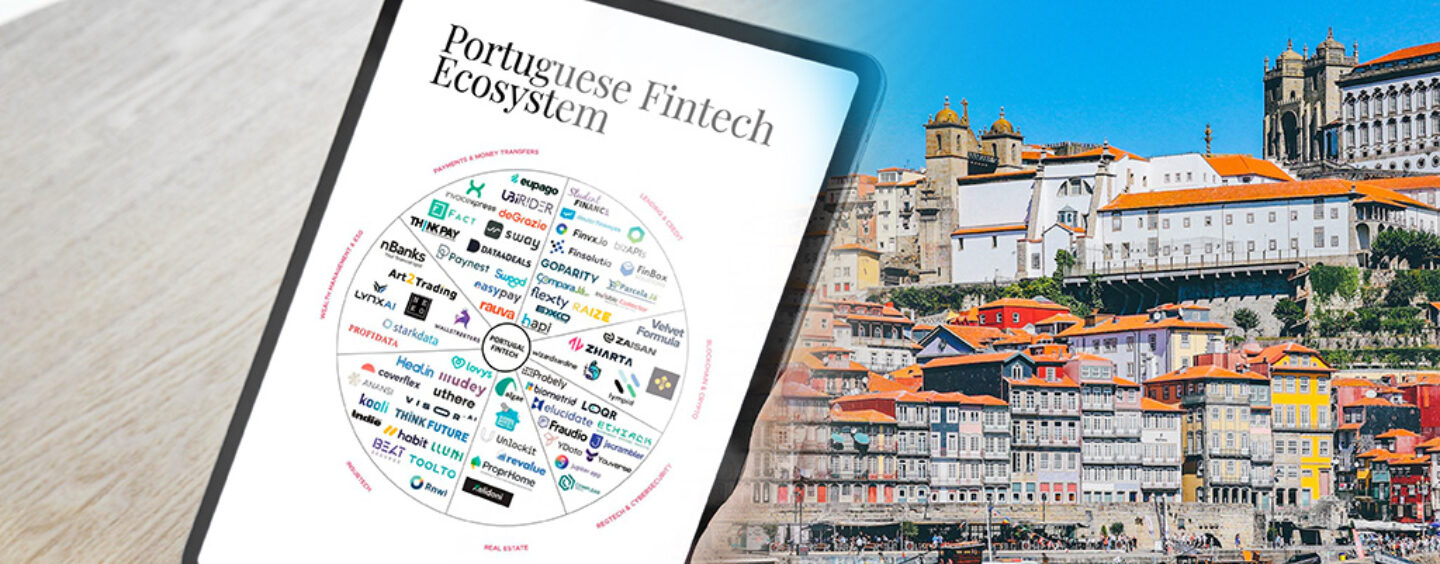2023 has been a challenging year for the fintech sector, which has been marked by high inflation, political turmoil and a looming global recession. The prevailing environment of macroeconomic uncertainties has led investors to become more risk-averse. This shift in attitude has reduced their willingness to make substantial investments, subsequently putting a halt on the investing mania.
But despite the challenges, Portugal’s fintech ecosystem has shown resilience, with investment, talent, business and innovation continuing to speed up this year. This growth has been driven by significant developments in industries such as artificial intelligence (AI), blockchain, digital banking, cybersecurity and open banking, and should carry on in 2024 as consumer demand for more personalized, convenient, and secure services continues to increase and as corporates accelerate their digitalization efforts, a new report produced by KPMG, Visa and Morais Leitao says.
The Portugal Fintech Report 2023, released last week, offers a comprehensive overview of the Portuguese fintech landscape, presenting industry statistics and expert insights, and highlighting the top fintech startups in Portugal. The report also captures the trends of the 2023 fintech industry and provides valuable insights into the anticipated developments in 2024.
According to the report, the Portuguese fintech sector continued to see dynamism in 2023, with total funding to date surpassing EUR 1.1 billion. Much of that sum went to startups in the blockchain and cryptocurrency (34%), lending and credit (27%), insurtech (18%) and regtech and cybersecurity (18%) industry.
Deals secured this year mostly involve early-stage ventures at the Series A stage and under, showcasing the rather nascent fintech landscape. Lending and credit startups took the lion’s share, accounting for 59% of all fintech funding raised in 2023, followed by insurtech (30%), payments and money transfers (6%), regtech and cybersecurity (3%) and real estate (2%).
Notable deals include StudentFinance’s EUR 39 million Series A, Coverflex’s EUR 15 million Series A, HolyWally’s EUR 2.3 million round and Visor.ai’s EUR 2.3 million round. StudentFinance is a global career mobility fintech platform from Spain; Coverflex is a Portuguese compensation management platform that offers employee benefits, insurance, meal allowance, and discounts; HolyWally is a wallet-as-a-service platform headquartered in Singapore; and Visor.ai is a no-code conversational AI platform for customer service automation headquartered in Portugal.

Emerging trends
The report delves into key industries and trends emerging in the Portuguese market. The first industry outlined is cybersecurity, a space that’s been growing on the back of rising cyberattacks.
Research by American cybersecurity firm SentinelOne found that financial institutions were the second most impacted sector based on the number of reported data breaches last year with institutions in the US, Argentina, Brazil, and China being the most affected. As of December 2022, finance and insurance organizations globally experienced 566 breaches, leading to over 254 million leaked records.
Data breaches cost the finance sector the second highest costs amongst all others at US$5.9 million.
Ransomware attacks on financial services increased from 55% in 2022 to 64% in 2023, which is nearly double the 34% reported in 2021.
This trend is expected to continue, making prevention crucial. Additionally, EU legislation, such as DORA, will mandate organizations to implement proactive cybersecurity measures, starting in 2025, adding further urgency to preparations, the report says.
Another trend outlined in the Portugal Fintech Report 2023 is open insurance, a model that’s presenting significant benefits for both consumers and insurers. For consumers, open insurance allows for tailored solutions, enhanced accessibility and improved customer experience. For insurers, open insurance allows them to tap into broader markets by collaborating with various partners, efficiency gains, as well as innovation opportunities and new revenue streams.
The report also discusses the transformative impact of Web3 on traditional finance and its implications for Portugal, highlighting three main Web3 use cases explored by banks and fintech companies, namely custody, payments, and tokenization. Notable examples include Fidelity and BNY Mellon in digital asset custody, PayPal’s stablecoin initiative, and Visa’s pilot for settlement with USD Coin.
These organizations are adopting tokenization and blockchain with hopes of improved efficiency, reduced costs and enhanced security. They are also looking to capitalize on the transformative potential of these technologies in the financial sector and ride on the digital asset frenzy.
But despite the opportunities, the report notes that financial institutions are facing challenges in the adoption of Web3, including a lack of expertise, security and interoperability issues, and regulatory constraints.
To overcome these hurdles, it stresses the need for banks and fintech companies to actively engage with regulatory bodies and participate in industry experiments to shape standards and best practices. One example is the ongoing Project Guardian by the Monetary Authority of Singapore, involving financial institutions like HSBC, OCBC bank, and Standard Chartered, which seeks to explore Web3 concepts.
As various countries navigate their Web3 journeys, the report anticipates a pattern of regulators working with the industry to define rules and laws, providing clarity and legitimacy. It concludes by highlighting that banks and fintech companies actively learning and testing with Web3 technology will have a competitive advantage.
A rapidly-evolving regulatory landscape
The regulatory landscape for fintech in Portugal is undergoing a rapid transformation that’s marked by the introduction of groundbreaking legislation, such as the Portuguese startup law, as well as ongoing advancements in the European Union’s Payment Services framework.
The Portuguese startup law, published in May, 2023, introduces significant changes to the tax regime and includes a more favorable scheme for stock options for startup employees. The law aims to foster innovation, stimulate competition, and ensure the financial well-being of both consumers and businesses.
In parallel, at the European level, the European Commission has proposed a Payment Services package, featuring a proposal for a new Payment Services and Electronic Money Services Directive (PSD3) and a new Payment Services Regulation (PSR1). The proposal aims to amend and modernize the existing Payment Services Directive (PSD2) to address critical gaps, encourage innovation and respond to the rapidly changing landscape of electronic payments in the EU.
Next year, the Markets in Crypto Assets Regulation (MiCA) will take effect, making the European Union the first major jurisdiction in the world to introduce comprehensive, tailored rules for the cryptocurrency sector.
The regulation identifies and covers three types of crypto-assets, namely asset-referenced tokens, electronic money tokens, and other crypto-assets not covered by existing EU law. The legislation regulates issuance and trading of crypto-assets as well as the management of the underlying assets, where applicable.
By enhancing the protection of consumers and investors as well as financial stability, MiCA aims to promote innovation and the use of crypto-assets.
Featured image credit: edited from Unsplash


Comments